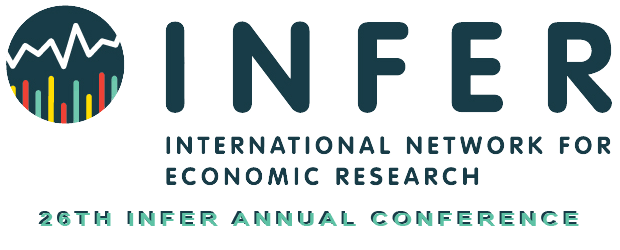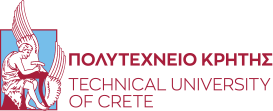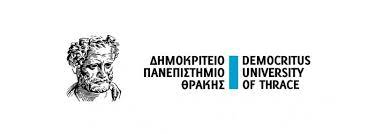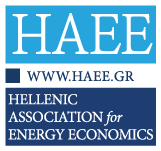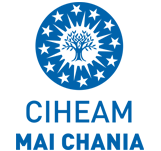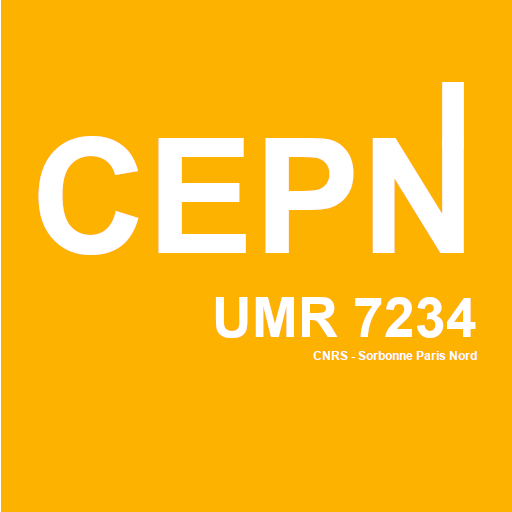Organizers
INFER is a non-profit organisation supporting research in all areas of economics. It has been established in Germany and has members from all continents. Researchers and practitioners from all fields of economics are welcomed as INFER members. Universities or research centers can join INFER as institutional members. INFER also aims to become a dissemination partner for large research projects. (http://www.infer-research.eu/)
The Technical University of Crete is a small, young, dynamic University with a clear mission: to expand knowledge and benefit society through research integrated with education. In this endeavour, the pursuit of excellence is the driving force. More than 70 laboratories with prime equipment, high technology infrastructure and eminently qualified personnel, as well as 120 faculty and staff members with international academic background attest to the level of excellence in education and research conducted at the University. The School of Production Engineering and Management, welcomed its first students in 1984 and the first graduate students in 1986. The curriculum of the school consists of modern technologies, production systems, management and decision making, finance, operational research as well as ergonomic design, control systems, materials, mechatronics and robotics (www.pem.tuc.gr).
Harokopio University of Athens is a public university dedicated to promoting research and learning in a small, well focused set of intellectual areas. The University’s excellent campus facilities houses four academic departments, the central administration, the library, the IT centre and student advisory services. The Department of Economics and Sustainable Development aims to promote scientific knowledge and research on subjects related to the domestic economy, the organization and operation of the family, as well as the management of the natural and cultural environment (www.dhee.hua.gr).
Academic Partners
Democritus University of Thrace (DUTh) includes 8 Schools, 20 Departments and a wide variety of Postgraduate Programs, with a student population of 29,000 undergraduate, graduate students and PhD candidates, approximately. The Department of Economics (DoE) is a leading Department in DUTh welcomes more than 300 graduate and 100 postgraduate students every year, promoting scientific knowledge and research on most of the subjects dealing with economic analysis and management. MaGBISE Laboratory of DoE is a dedicated research unit promoting state of the art research in Management, Governance, Business Intelligence, Strategy and Corporate Ethics in Infrastructure Operators, Networks and Supply Chain, maintaining research outputs of the National Research Infrastructures of ENIRISST and ENIRISST-plus, (https://econ.duth.gr/en/home-en/ ).
The Hellenic Association for Energy Economics is a nonpartisan, nonprofit, research organization, dedicated to providing an interdisciplinary forum for the exchange of knowledge, information & experience among energy industry experts, academic, government and other professionals interested in energy economics. (https://www.haee.gr/)
As the population grows, so do our demands on the planet. Managing this resource has never been so important. Since it was founded in 1901, Harper has been designed to meet this challenge. Set on a 550 hectare farm, is a leading specialist university tackling the future development of our planet's food production, processing, animal sciences, engineering, land management and sustainable business. HAU’S mission is to provide world leading higher education and research for the delivery of sustainable food chains and the protection of rural resources for future generations. Main Subject areas: Agriculture, Animal Sciences, Business and Agri-food, Environment, Sustainability and Wildlife, Engineering, Food Technology and Innovation, Rural Estate, Property and Land Management Veterinary Nursing and Physiotherapy, Zoology. (www.harper-adams.ac.uk)
Τhe International Centre for Advanced Mediterranean Agronomic Studies (CIHEAM) is a Mediterranean intergovernmental organisation composed of 13 Member States (Albania, Algeria, Egypt, France, Greece, Italy, Lebanon, Malta, Morocco, Portugal, Spain, Tunisia and Turkey). It operates through its 4 Institutes based in Bari (Italy), Chania (Greece), Montpellier (France) and Zaragoza (Spain) and the Headquarters based in Paris. As a key player in multilateral cooperation in the fields of sustainable agriculture and fisheries, food systems, coastal and rural development (http://iamc.ciheam.org/)
